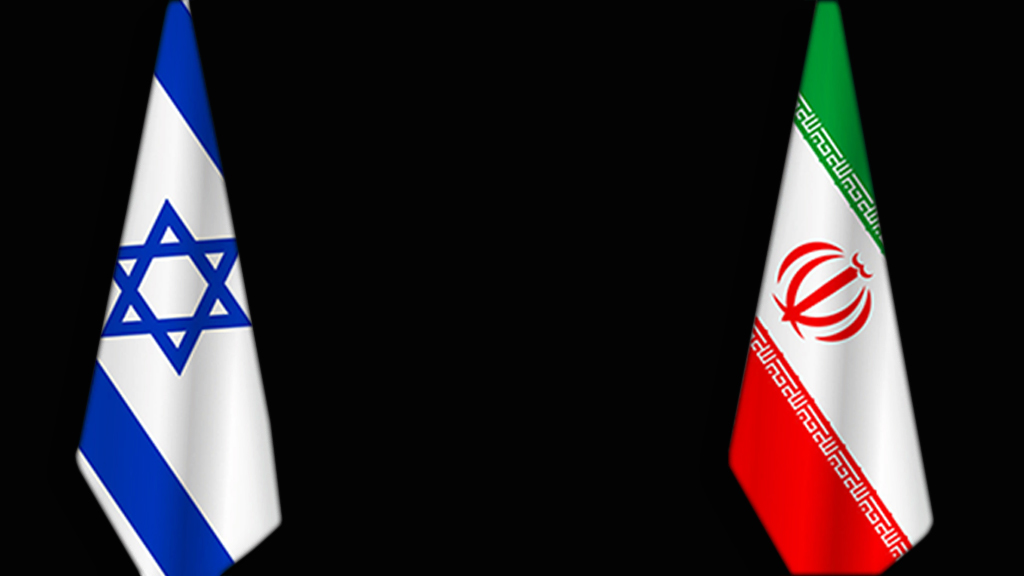Cease-fire in Lebanon: Catalyst for regional shifts?
After approximately 14 months of conflict, a cease-fire between Israeli and Hezbollah forces in Lebanon came into effect at 4 a.m. local time on Nov. 27. Mediated by the United States and France, the cease-fire is fundamentally based on the revival of United Nations Security Council Resolution 1701. According to this agreement, Hezbollah forces will withdraw north of the Litani River, while Israeli forces will retreat south of the Blue Line. This process is expected to be completed within 60 days.
More


Will Iran-Israel tensions lead to full-scale war?
Tensions between Iran and Israel escalate, raising fears of full-scale war amid ongoing regional conflicts
More
Erdoğan’s remarks frame Israel as a looming national security threat to Türkiye, intensifying concerns over its moves in Gaza and the broader Middle East
In the wake of the Al-Aqsa Flood, the Hamas attack against Israel on Oct. 7, 2023, Israel initiated a large-scale military operation against the Gaza Strip. The asymmetric and intense military attacks ended up with genocide. So far, Israel has killed more than 42.000 Palestinians, most of which are innocent children and women, wounded more than 90,000 and displaced more than 2 million people. Israeli security forces hit civilian residential areas, including schools, hospitals, ambulances, mosques, churches, tents, refugee camps and the U.N. centers. Eventually, Israeli forces destroyed almost all of the Gaza Strip. With the unconditional support of Western countries such as the United States, Germany and the United Kingdom, Israel violated all principles of international humanitarian law in front of the world.
Israel's latest covert operations, indiscriminately targeting both soldiers and civilians, have now been directed at Hezbollah. In a coordinated attack, Israel detonated devices placed in the pagers and radios of thousands of Hezbollah members, a move that could be studied in intelligence courses for its precision. Previously, Israel’s assassination of Ismail Haniyeh in Tehran had exposed a major security flaw in Iran. This new operation, injuring thousands of Hezbollah members, now reveals significant security vulnerabilities within Hezbollah itself. If Hezbollah responds to this provocation, which marks Israel’s latest attempt to escalate tensions in the region, war seems inevitable. However, should the U.S. intervene behind the scenes to prevent Hezbollah from engaging Israel, it would signal that Iran is prioritizing a potential post-election deal with the U.S. over immediate conflict.
On October 7, 2023, the Palestinian group Hamas launched a major attack on Israeli settlements near Gaza. This unexpected operation drew global attention and led to a series of responses from Israeli officials and their allies. Following this event, the Middle East experienced a significant escalation in regional conflicts, particularly involving Hezbollah, a Lebanese group with close ties to Iran.
Israel-Hezbollah war will be costly
The Israel-Hezbollah conflict has once again brought the Middle East to the brink of full-scale war. Since October 2023, when the Palestine-Israel conflict flared up again, the border between Israel and Lebanon has become a flashpoint for military clashes. Hezbollah responded to Israel’s war in Gaza by increasing its attacks on Israeli military positions. In response, Israel has carried out significant artillery and airstrikes targeting Hezbollah infrastructure in southern Lebanon. As a result, hundreds of thousands of people on both the Israeli and Lebanese sides have been forced to flee their homes.
More


Netanyahu's Iran card...
In response to Israel's striking of Iran's consulate in Syria, Ayatollah Khamenei's statement of "retaliation will be given" has heightened the possibility of the regional proxy war escalating into direct conflict. Since October 7th, Netanyahu has been attempting to expand the conflict by targeting Hamas and Shia militia objectives in both Beirut and Syria. The relatively controlled continuation of the "regional war" relied on Iran and Hezbollah refraining from militarily supporting Hamas. However, Khamenei's remarks suggesting that striking the Iranian consulate would mean targeting Iranian soil have also put Washington on high alert.
More
Against the backdrop of Israel's massacre in Gaza, attention has been shifting to Iran. Following the bombardment of the Houthis by the United States and the United Kingdom for disrupting commercial shipping in the Red Sea, Iran and Pakistan experienced an escalation, with both sides firing missiles over terrorism. Moreover, Israel killed five members of the Revolutionary Guards Corps in Damascus last weekend, resuming its past operations against the Iranian presence in Syria. The seeming purpose of such strikes is to stop Iran from sending military aid to the Axis of Resistance – namely Hezbollah and Hamas. More important, however, is Israeli Prime Minister Benjamin Netanyahu's commitment to ensuring the Israeli-Palestinian conflict's regionwide spillover – which contradicts the Biden administration.
A series of attacks and clashes sent shockwaves through the Middle East over the last week. Israel's massacres in Gaza and low-intensity conflict with Hezbollah at the Lebanese border remain underway. Meanwhile, in the Red Sea, the United States and Britain bombed Yemen's Houthis for the fourth time on Thursday. Washington also relisted the Houthis as a global terrorist group.
For a considerable period, Türkiye and Syria have engaged in discussions aimed at reshaping their bilateral relationship into a new framework. Most recently, a diplomatic meeting took place in Moscow in April involving foreign ministers from both countries, along with Russia and Iran. However, since April, the trajectory of these talks has become increasingly uncertain. This uncertainty has been shaped by the complex nature of the Syrian conflict, the divergent priorities of the external actors, the strategically ambiguous behavior of the Bashar Assad regime and the lack of capacity of the state of Syria. Other dynamics exist that make the talks between Türkiye and Syria more difficult to reach the real objectives of the negotiations process.







